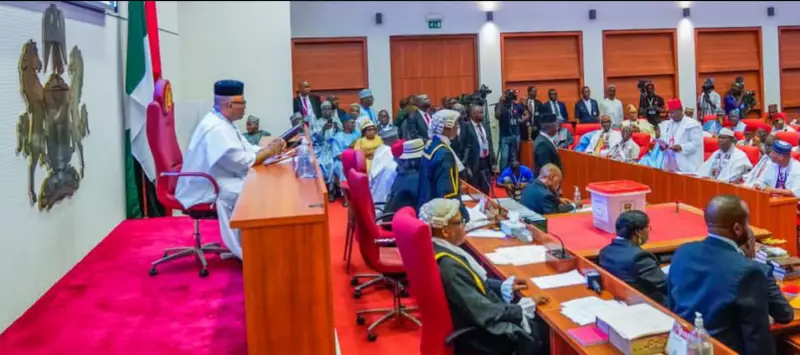
In a landmark move that could reshape Nigeria's transportation landscape, the Senate has taken decisive steps toward phasing out petrol-powered vehicles in favor of electric alternatives. The groundbreaking legislation, known as the 'Electric Vehicle Bill,' has successfully scaled through its second reading, signaling strong parliamentary support for the country's green energy transition.
Legislative Momentum Builds for Green Transportation
The proposed legislation, officially titled 'The Electric Vehicle (EV) Bill,' represents one of the most ambitious environmental initiatives in Nigeria's recent legislative history. Spearheaded by Senator Ikra Bilbis, the bill aims to establish a comprehensive framework for electric vehicle adoption across the nation.
Key provisions of the bill include:
- Establishment of national charging infrastructure standards
- Incentives for local EV manufacturing and assembly
- Gradual phase-out timeline for internal combustion engine vehicles
- Training programs for automotive technicians in EV maintenance
- Tax benefits for early adopters of electric vehicles
Addressing Environmental and Economic Challenges
During the passionate Senate debate, Senator Bilbis emphasized the urgent need for Nigeria to join the global shift toward sustainable transportation. "The world is moving toward cleaner energy sources, and Nigeria cannot afford to be left behind," he stated. "This bill represents our commitment to reducing carbon emissions while creating new economic opportunities."
The legislation comes at a critical time when Nigeria faces dual challenges of rising fuel costs and environmental degradation. Proponents argue that transitioning to electric vehicles could significantly reduce the country's massive fuel subsidy burden while improving urban air quality.
Infrastructure Development Takes Center Stage
A crucial aspect of the bill focuses on developing Nigeria's EV charging infrastructure. The proposed framework includes:
- Mandatory installation of charging stations in new commercial buildings
- Partnerships with private sector for nationwide charging network
- Special provisions for renewable energy-powered charging stations
- Standardized pricing and safety regulations
Economic Implications and Job Creation
The transition to electric vehicles presents significant economic opportunities for Nigeria. The bill includes provisions to encourage local assembly and manufacturing of EVs, potentially creating thousands of jobs in the automotive sector.
Industry experts highlight several potential benefits:
- Reduced dependence on imported refined petroleum products
- Development of local battery manufacturing capabilities
- Opportunities in renewable energy generation to power EVs
- Positioning Nigeria as an EV hub for West Africa
Next Steps and Implementation Timeline
With the second reading successfully completed, the bill now moves to the Senate Committee on Environment for detailed scrutiny and public hearings. The committee is expected to engage with stakeholders including automotive manufacturers, energy experts, and environmental advocates.
The proposed legislation includes a graduated implementation approach, allowing sufficient time for industry adaptation and infrastructure development. This phased strategy aims to minimize disruption while maximizing the benefits of the transition to electric mobility.
As Nigeria stands at the crossroads of energy transformation, this legislative initiative demonstrates the country's determination to embrace sustainable technologies while addressing pressing environmental and economic challenges.





